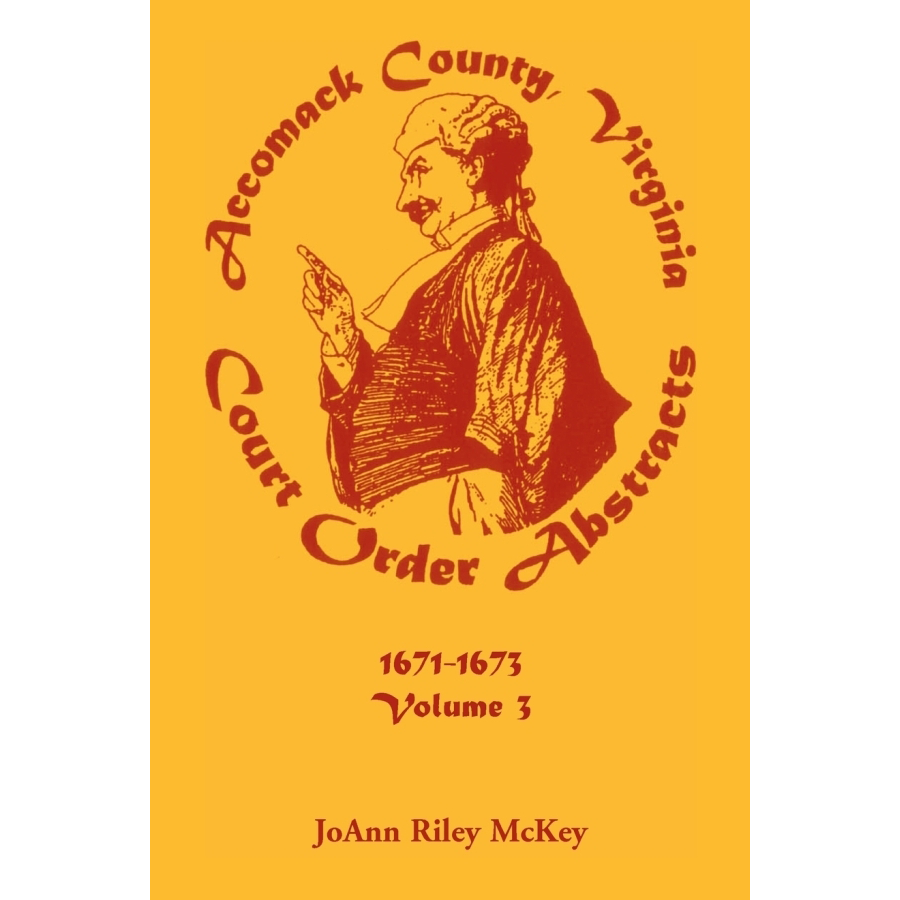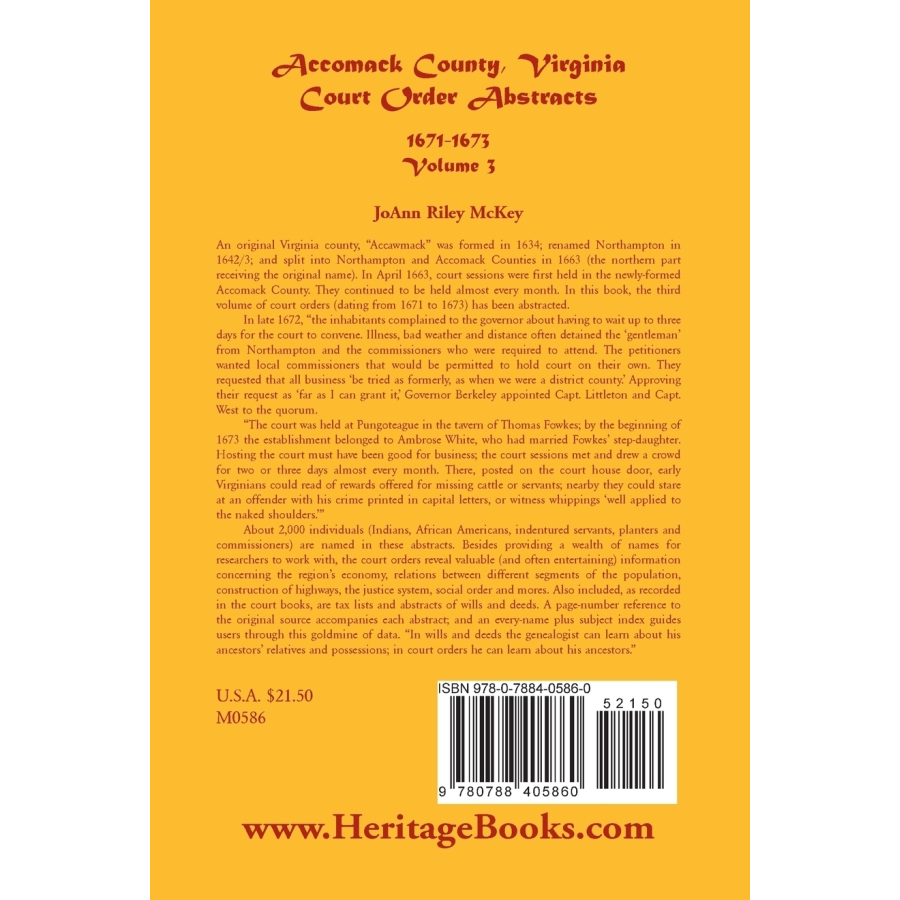Accomack County, Virginia Court Order Abstracts, Volume 3: 1671-1673
Couldn't load pickup availability
An original Virginia county, "Accawmack" was formed in 1634; renamed Northampton in 1642/3; and split into Northampton and Accomack Counties in 1663 (the northern part receiving the original name). In April 1663, court sessions were first held in the newly-formed Accomack County. They continued to be held almost every month. In this book, the third volume of court orders (dating from 1671 to 1673) has been abstracted. In late 1672, "the inhabitants complained to the governor about having to wait up to three days for the court to convene. Illness, bad weather and distance often detained the 'gentleman' from Northampton and the commissioners who were required to attend. The petitioners wanted local commissioners that would be permitted to hold court on their own. They requested that all business 'be tried as formerly, as when we were a district county.' Approving their request as 'far as I can grant it,' Governor Berkeley appointed Capt. Littleton and Capt. West to the quorum. "The court was held at Pungoteague in the tavern of Thomas Fowkes; by the beginning of 1673 the establishment belonged to Ambrose White, who had married Fowkes' step-daughter. Hosting the court must have been good for business; the court sessions met and drew a crowd for two or three days almost every month. There, posted on the court house door, early Virginians could read of rewards offered for missing cattle or servants; nearby they could stare at an offender with his crime printed in capital letters, or witness whippings 'well applied to the naked shoulders.'" About 2,000 individuals—Indians, African Americans, indentured servants, planters and commissioners—are named in these abstracts. Besides providing a wealth of names for researchers to work with, the court orders reveal valuable—and often entertaining—information concerning the region's economy, relations between different segments of the population, construction of highways, the justice system, social order and mores. Also included, as recorded in the court books, are tax lists and abstracts of wills and deeds. A page-number reference to the original source accompanies each abstract; and an every-name plus subject index guides users through this goldmine of data. "In wills and deeds the genealogist can learn about his ancestors' relatives and possessions; in court orders he can learn about his ancestors."
JoAnn Riley McKey
(1996), 2012, 5.5" x 8.5", paper, index, 184 pp.
ISBN: 9780788405860
101-M0586

